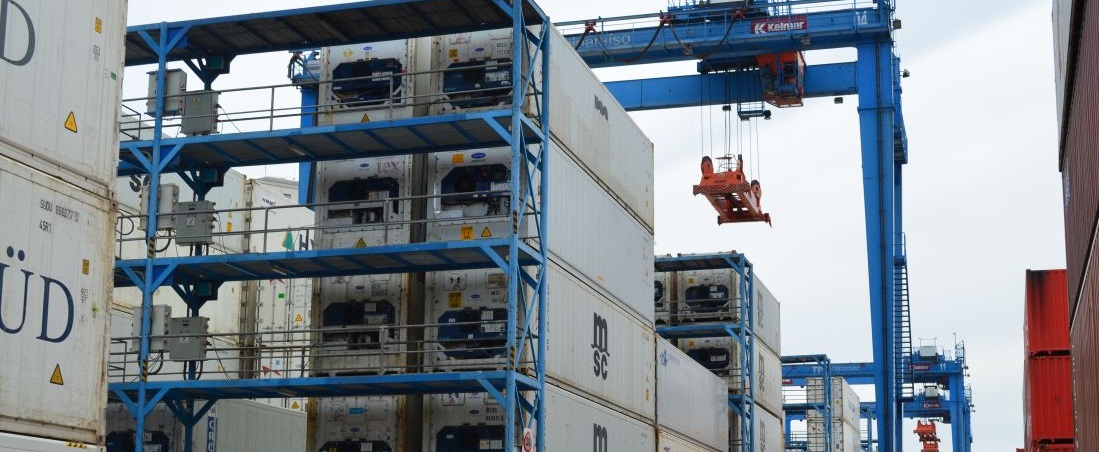
Sea freight to China quintuples and affects meat and fruit exports
Mar, 30, 2021 Posted by Ruth HollardWeek 202114
The disorganization of global trade flows caused by the Covid-19 pandemic, skyrocketing the price of freight between China and Brazil – now five times more expensive than a year ago – raised not only the cost of importing imports for industry, but it also begins to hinder meat and fruit exports. According to sources in the foreign trade sector, the lack of refrigerated containers, essential for the transportation of these products, has hindered shipments.
According to Hamburg Süd executives, the availability of refrigerated containers bottomed out at the end of last month.
At the beginning of the pandemic, restrictions on trade and transport and the drop in demand paralyzed ships worldwide. In the second half, demand for goods returned more quickly than expected, leading to a race for transport services. There was a lack of containers and ships, while operations were often slower because of protocols against the Covid-19 virus. The situation was defined by entrepreneurs in the maritime transport sector as a “perfect storm”.
As a result, the average price of freight to China has skyrocketed. In the third week of 2021, freight between Brazil and China was four and a half times higher than at the beginning of 2020 and 18 times more expensive than in the middle of last year. From then until the third week of March this average price showed some relief, with a drop of 23%, but it is still 405% higher than in the same period of 2020.
With the increase in freight to China, inputs for the manufacture of products such as appliances, electronics, and clothing are becoming more expensive, putting pressure on these industries to increase consumer prices. On the export side, the most affected sectors are the meat and fruit producers, because the imbalances in logistics are concentrated in the movement of cargo in containers. The main items exported by Brazil – soybeans, corn, and iron ore – are transported in large bulk carriers chartered in their entirety. The costs are usually borne by the buyer, that is, the picture has little effect on the exporters of these commodities.
According to José Salgado, Commercial Executive Director of Hamburg Süd in Brazil, by the end of February, the company had stopped delivering 5% of the total volume of refrigerated exports to which it was committed in contracts. To solve the problem, the company is actively searching for containers, avoiding discarding old containers whose useful life could be extended with maintenance, and renting additional vessels.
Meats and fruits
In Brazil, refrigerated containers are used primarily for meat and fruit exports, said Bruno Carneiro Farias, president of F Trade, an agency specializing in foreign trade logistics. It is just not possible to compare meat and fruit shipments. The largest global producer and exporter of beef, Brazil sent abroad 2 million tons of red meat last year, a revenue of US$ 8.5 billion, according to ABIEC, an association of meat exporters. And data rm ABRAFRUTA shows that fruit producers sold 1 million tons abroad – especially mangos, melons, grapes, and limes – with revenues of US$ 876 million.
“A large lime customer exports 600 containers a year. A large meat customer exports 1,000 containers a week,” said Farias.
For this reason, hauliers give preference to meat exports. Customers are large companies, such as JBS, BRF, and Marfrig. Furthermore, meat production does not have much seasonality, with constant shipments throughout the year, which makes it possible to enter into longer-term freight contracts. The freight prices to China that have soared, as measured by the SCFI, are negotiated contracts that are drawn up week by week, in the so-called “spot” market, generally at higher prices than long-term ones.
The fruits are harvested and there is a peak in production. According to Farias, large melon producers also usually sign long-term contracts to transport exports, but many small producers and cooperatives resort to the “spot” market. In the face of imbalances, Hamburg Süd, for example, gave up signing a contract to transport apple exports from Santa Catarina, said Mariana Lara, sales director. The company also stopped transporting egg exports.
“We had the expectation of a strong participation in the Brazilian apple harvest and we retreated,” said Lara, adding that the second quarter of the year is marked by the fruit harvest in several regions of the world, increasing the demand for refrigerated containers, which contributes even more to the scarcity of such equipment.
-
Vessel Calls
Mar, 07, 2021
0
Fewer vessel calls but higher volumes handled at Santos this year YoY
-
Ports and Terminals
Jun, 13, 2023
0
Mayor engages in talks amid contract concerns and cargo shortage in Angra dos Reis
-
Economy
Jun, 08, 2022
0
Paraguay ships 21% more items produced in ‘maquiladoras,’ beef follows suit
-
Other Cargo
Apr, 19, 2022
0
Brazilian exports of ornamental stones grew 7.98% in 2022 Q1



